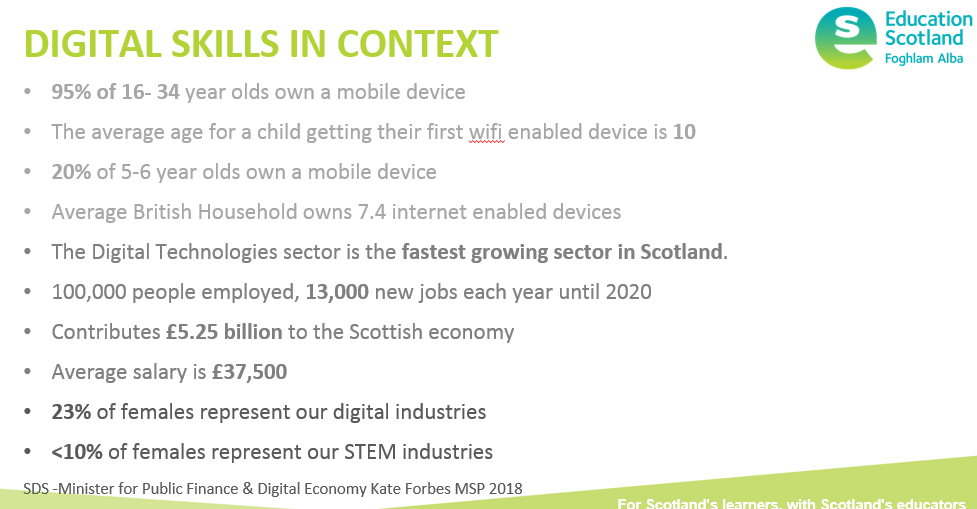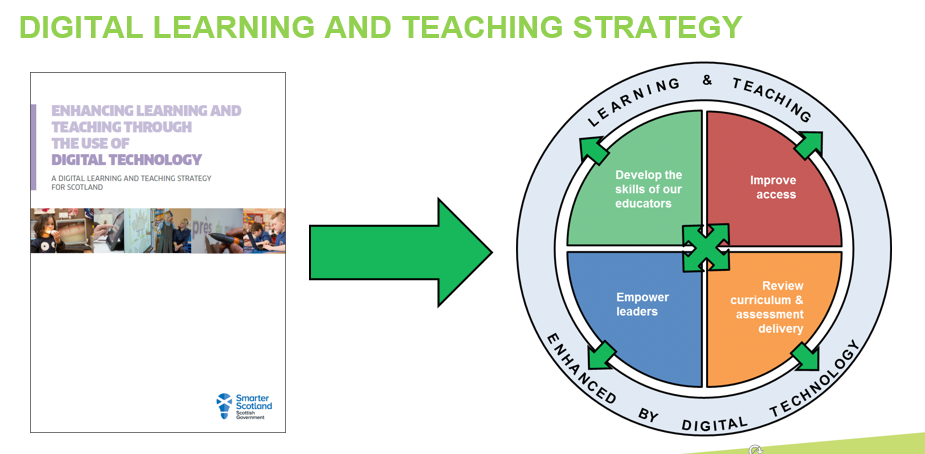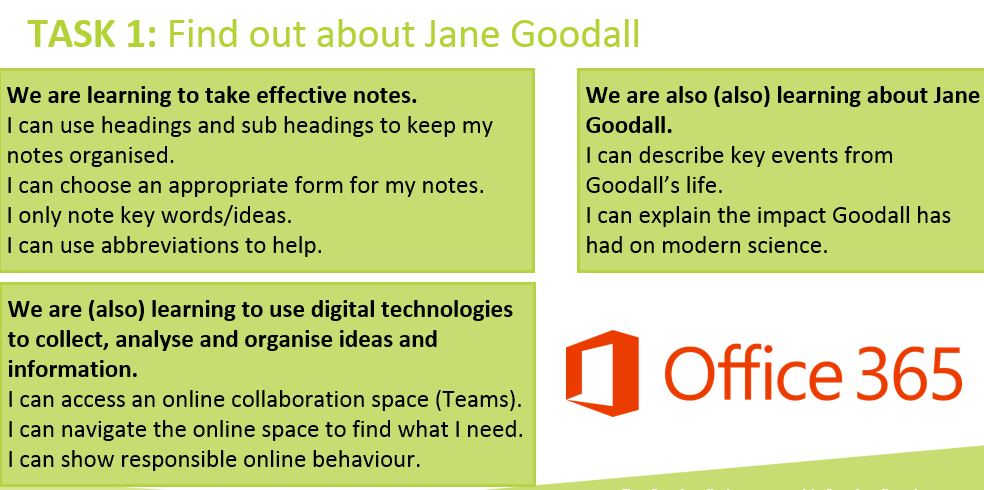
James Miller, our FV & WL regional collaborative seconded development officer for Digital Skills presented key information and support at the June 2019 National Literacy Network meeting. The slide above captures facts which show the relevance of digital literacy for our young people as they grow. Key points are bulleted below along with useful links:
- Experiences and Outcomes specific to Digital Literacy and Computing Science have been present in our Technologies curriculum area from the emergence of Curriculum for Excellence. Internet Safety and Cyber Resilience are sub-organisers/elements within Digital Literacy.
- Since 2017 developments to Technologies include a review and re-fresh of E & Os & creation of the Technologies Benchmarks
- Key Digital Literacy documents include: HGIOS 4, Digital Strategy for Scotland refresh, Cyber Resilience Strategy for Scotland, STEM Strategy and…

- Enhancing Learning and Teaching Through the Use of Digital Technology 2016 supports effective & appropriate use of technology across the curriculum for practitioners in all settings. It has four objectives/areas of focus: Educator Skills, Curriculum and Assessment, Access to Technology and Leadership. The document defines 40 national actions for these and sets out expectations for schools and local authorities.
James highlighted the variety of texts which are digital: emails, films, games, TV programmes, instructions, text messages, blogs, etc. He explored how literacy and digital literacy skills could be bundled or grouped in relevant ways within the broad general education (BGE), suggesting that pupils could/should be inspired and encouraged to use digital technology in new ways to develop their literacy AND digital literacy skills i.e. naturally occurring interdisciplinary learning opportunities – see slide below with the success criteria.
 Click here to view the extracts from his presentation which offer further advice about linking/progressing literacy across learning with digital literacy, including resource suggestions such as Immersive Reader – a Microsoft OneNote tool – click here – which can support development of reading comprehension, fluency and confidence in readers with English as a first or additional language.
Click here to view the extracts from his presentation which offer further advice about linking/progressing literacy across learning with digital literacy, including resource suggestions such as Immersive Reader – a Microsoft OneNote tool – click here – which can support development of reading comprehension, fluency and confidence in readers with English as a first or additional language.

